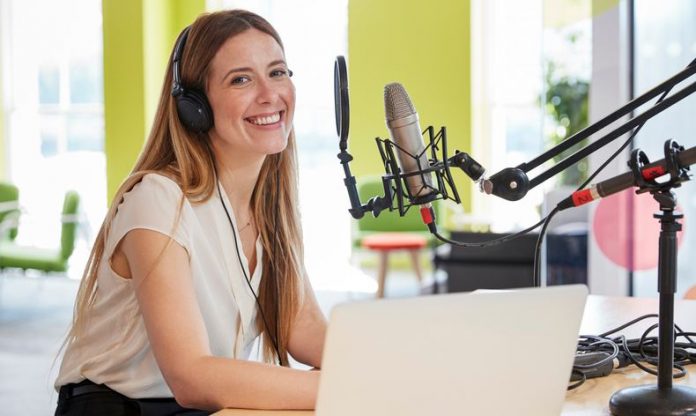How To Create Podcast Media From Audio Tape
The digital revolution has rendered many of to a state of utter confusion when it comes to dealing with older/analog audio technologies.
A good number of us are still utilizing the familiar old tape deck to record our audio, but then become absolutely befuddled when it comes time to transfer that audio into the digital environment.
I always get this picture in my head of my clients standing there with RCA audio cables – staring blankly at their computer – wondering how to get the audio from the source to the destination.
This tutorial is meant to help out those confused masses. I will preface the tutorial by saying that this is by no means the ideal way to create podcast media.
However, people should stick to what they’re comfortable with. If that’s audiotape – then by all means – go for it! Maybe someday you’ll invest in a good MP3 recording device – but until then – it’s no biggie.
So – let’s get started.
Equipment/Hardware Needed
- Standard Audio Cassette Player.
I highly recommend using a good quality walkman – for it has the ideal output port on it built in. I do not recommend using your home stereo cassette deck for this procedure – because your deck most likely has either RCA outs (absolutely no good) and a 1/4″ plug (if you’re lucky.)
2. A 1/8″ to 1/8″ Mini Plug connector.
Do you know the little plug connector that’s at the end of your headphones? This cable has two of those – one on each end.
You can purchase these cables at pretty much any electronics store. (If you must use your home stereo deck – and if it comes with a 1/4″ plug jack – you can probably find a 1/4″ to 1/8″ adapter along with the cord.)
3. Good sound card for your computer with a “line in” jack (looks just like the audio out jack.
If you’ve purchased your computer within the last few years – you most likely already have an audio card sufficient for this process.) Familiarize yourself with the location of the card, and find the “line in” jack.
Software Needed
Audio Recording Software with noise-reduction filters. I recommend Audacity – as it’s free and pretty simple to use.
Once you have all of the equipment, it’s time to get started.
Transferring the audio from Tape to Computer
Step 1:
Connect the tape deck to the computer by plugging one end of the connector cable into the headphones jack of the walkman, and the other end of the connector cable into the “line in” jack of your computer’s sound card.
Step 2:
Install your audio processing software (Audacity.)
Step 3:
Launch Audacity, and look for the input pulldown menu. It’s on the top right of the screen. Click the tab and select “Line In”.
Step 4:
Adjust the volume of your walkman to be medium/low. Rewind the tape and press Play.
Step 5:
Press “Record” in Audacity’s interface and check the levels of the audio being brought in. If the levels are too high (hot) your audio will be distorted. You will know if the audio is “hot” by if the levels trip too far to the right. If so, either adjust the volume from the walkman, or the audio input levels in the software to compensate.
Step 6:
After finding the perfect recording level, you’re ready. Rewind the tape again. Press “record” in audacity, and press “play” on your walkman.
Step 7:
Review your audio. If you’re happy with it, save it, and begin to tweak it with the noise reduction software.
Step 8:
Save your audio file as .mp3 format.
You’re done! Now your audio is ready to be included/posted to your podcast.
If you need a good podcast host I recommend AvMyPodcast.com. They have unmetered bandwidth, great tech support, and a lot of tutorials to teach you how to make a podcast.
Good luck!

